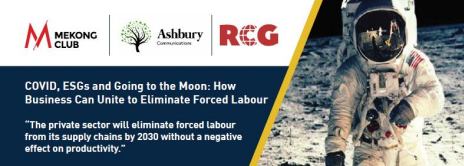A ‘moon goal’ for modern slavery


A ‘moon goal’ for modern slavery
Mekong Club-led initiative challenges private sector to eliminate forced labour from supply chains by 2030
The Mekong Club, Research and Communications Group (RCG) and Ashbury Communications today launched a new paper that challenges the private sector to eliminate forced labour from its supply chains by 2030 – and sets out a roadmap for realising this goal without a negative effect on companies’ profitability. The announcement coincides with CNN’s #MyFreedomDay, a global, student-driven event that raises awareness about modern slavery.
“We know that great things can be accomplished when people are drawn together by a common vision,” said Matt Friedman, CEO of the Mekong Club. “Like the U.S. space programme before it set the goal of putting a man on the moon, our response to modern slavery today is fragmented and often inefficient. A large number of highly committed people are working without a common vision and there is limited evidence of effective progress. We believe that establishing a highly ambitious – yet achievable – goal for ending modern slavery will bring together these disparate efforts and free millions of people from exploitative labour practices, while not forcing business to choose between what is right, what is sustainable and what is profitable.”
A way forward
As well as establishing the 2030 goal, the paper also sets out a roadmap for the private sector to use in eliminating an estimated 16 million modern slaves from its supplier networks. This approach is based on five core components, each of which has clearly defined targets.
- Build a clear and common understanding of modern slavery and why business must respond
- Equip counter-slavery actors with the information they need to act effectively, efficiently and decisively against modern slavery
- Establish multi-stakeholder monitoring, feedback and remedy systems to identify, address and prevent further labour violations
- Enhance the value of social audit processes through improvement and integration
- Support ethical migrant worker recruitment solutions
The Mekong Club, a Hong Kong-based non-profit that engages the private sector in the fight against modern slavery, will facilitate these processes. Based on feedback from the private sector, the Mekong Club also hopes to work with the private sector to collectively develop a set of Principles that support the 2030 goal.
Modern slavery is an ESG factor
The paper, COVID, ESG and Going to the Moon: How Business Can Unite to Eliminate Forced Labour, highlights how companies’ efforts to eliminate modern slavery from their supply chains will be seen as increasingly important by the growing number of institutions investing in accordance with Environmental, Social and Governance (ESG) principles. The paper argues that the way that a company addresses ESG issues – including the risk of forced labour among its suppliers – has already become a key factor in determining its access to capital, customers and talent.
“Every ESG investor should be taking forced labour into account,” said Adam Harper, Managing Director of Ashbury. “As ESG becomes the dominant investment theme of our times, shareholders will expect companies to rapidly improve disclosure and action on the full spectrum of environmental and social issues. For climate change, there’s the Paris Agreement, national net-zero targets and a number of frameworks to help corporates and investors achieve them. For the first time, we are proposing an equivalent goal for ending forced labour – and a practical methodology to help move towards that goal.”
Towards more standardised reporting
Sustainable investing has built up astonishing momentum over the last decade. According to research firm Opimas, the value of global assets applying ESG data to drive investment decisions has almost doubled over four years, and more than tripled over eight years, reaching US$40.5 trillion in 2020.iIn 2020, ESG funds attracted a record US$347bn of inflows, with 700 new funds being launched.ii
However, the Social component of ESG is widely considered to be the most challenging of the three components to measure. There are at present no standardised criteria or quantitative indicators for measuring social factors relating to modern slavery. The Mekong Club, RCG and Ashbury hope this initiative will enable companies to provide their investors and other stakeholders with more useful and consistent data about how they are addressing the risk of forced labour in their supply chains.
Pandemic effect
While sustainable investing has thrived during the pandemic, Covid-19 has also highlighted the vulnerability of the world’s poorest people as it caused the worst recession since the Great Depression. With global GDP expected to contract by 4.4% in 2020, the United Nations has warned that more than 200 million people could be pushed into extreme poverty by 2030.iii iv
This economic situation clearly puts more people at risk of modern slavery, yet efforts to help the estimated 40 million already trapped in forced labour have proved to be inadequate: it appears that only around 0.2% are receiving assistance. Phil Marshall, Director of Private Sector Engagement at the Research and Communications Group explained that: “The frustrating thing for me is that we actually know why many of these victims are not being identified. But it’s an opportunity also because we have some great examples of how we could help a lot more people, if we all committed to making this a priority.”
About the Mekong Club
The Mekong Club is one of the first not-for-profit organisations of its kind in Asia to use a ‘business-to business’ approach to fight modern slavery. Bridging the gap between the public and private sectors, the Mekong Club helps companies of all sizes to understand the complexities of modern slavery and to reduce their vulnerability within their supply chains/business environment. Together with business partners, the Mekong Club is spearheading innovative and strategic projects to achieve a slave-free world.
About Research and Communications Group (RCG)
The Research and Communications Group is a small, specialised consultancy company committed to improving social development outcomes. RCG’s private sector engagement programme brings together professionals with experience in counter-trafficking, manufacturing, auditing, and migration research to help organisations implement practical, timely solutions to labour issues within their supply chains, grounded in an in-depth understanding of the realities faced by migrant and non migrant workers.
About Ashbury Communications
Ashbury is an Asia-focused and content-led strategic communications consultancy that is driven by the future of finance. We exist to build and protect our clients’ reputations through strategic advice and outstanding content based on deep experience in the region and the financial sector. Ashbury was built on the conviction that original content creation and strategic advice should be fully integrated in corporate communications, disrupting traditional agency models that often separate two disciplines that should rightly inform and shape each other.
Our clients are global banks, insurers, asset managers, industry bodies and fintechs active in Asia Pacific. We have a distinctive expertise in two areas that will drive the future of finance: Environmental, Social and Governance (ESG) and technology.


